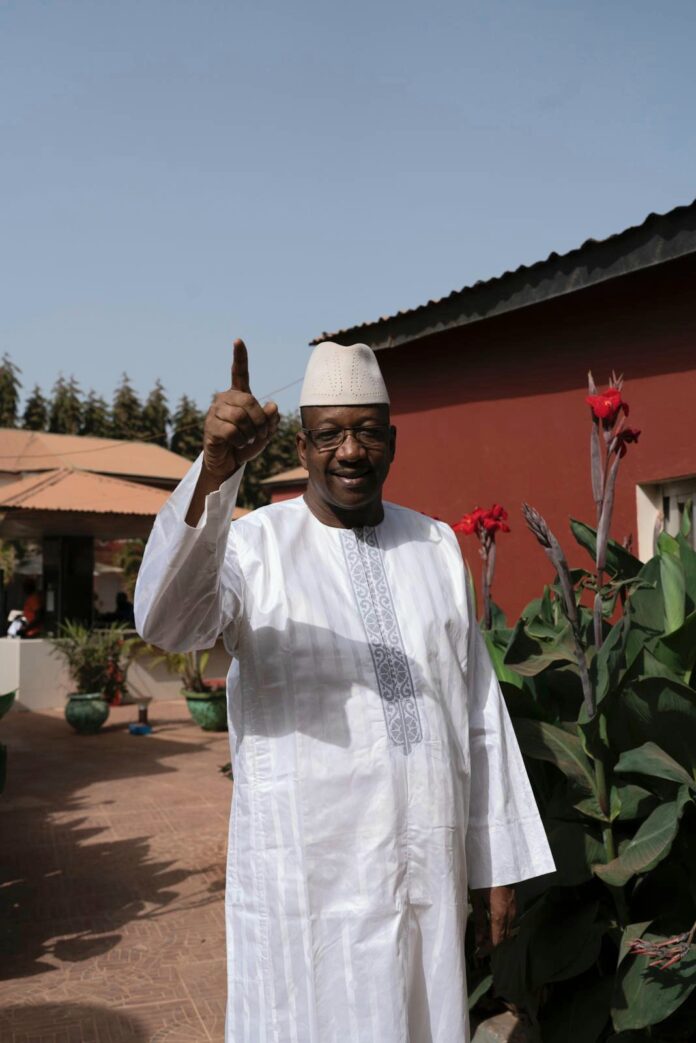Following the interview by the Minister of Energy and Petroleum in relation to the oil saga, the Gambia Democratic Congress has written demanding answers to our concerns.
The interview by the Minister has ended up putting concerned Gambians in a more uncomfortable situation due to a lack of transparency, most especially in the case between African Petroleum and the government.
We applaud the Minister for coming out to speak about it, but the fact remains that we are yet to be convinced by his utterances.
African Petroleum, a company of Frank Timis, was issued a license for offshore blocks A1 and A4 in our waters in 2006. The said company’s license was extended three times, and they failed to honor the agreement with actions until their license expired in 2016.
According to the GDC, the said company has persistently pursued the renewal of its license, which we believe is backed by an interest to trade it with bigger companies for money, as they lack the capacity to act accordingly.
We have seen the legal battle between African Petroleum and the government due to the extension of the license, which ended up in arbitration court upon the expiry of their license.
The company went ahead to sue the government, according to the Minister of Energy and Petroleum, and the government responded and defended its actions, as stated by the Minister. This begs three important questions:
1. If the license issued to African Petroleum was not revoked by the government and it expired after three extensions were given to them, why would the said company take the government to an arbitration court?
2. If the government responded to the court and defended its actions, according to the Minister, then what was the verdict of the court?
3. If the said court ruled in favor of the Gambian government, then why would African Petroleum come to The Gambia in 2020 requesting an out-of-court settlement?
We received a report that the government agreed to the said request and a settlement was reached.
The Minister failed to explain how the settlement was reached.
The other question is, how was BP given a license for the same oil block A1 that was originally issued to African Petroleum, a company of Frank Timis?
Why would BP exit from the A1 Block oil, which holds a capacity of 1 billion barrels of oil, and only justify their quitting from the deal due to what the company called “low carbon energy”?
BP, being a reputable company, didn’t know the facts of our oil prospects before committing itself to a contract with the government?
According to the Minister, he said The Gambia and Senegal share offshore international boundaries, and it is speculation to talk about lucrative oil reserves near the border, as there is no oil in The Gambia.
The Minister failed to do his homework, as it would have been better if he could show Gambians the map of the international offshore borderline between the two countries and indicate the area where Senegal discovered their oil reserves.
I would advise the Minister to call for the attention of Erin Company to shed light on the oil reserves in the area, as they were said to have been connected to the feasibility study.
We hold the strong opinion that the former Petroleum Minister, Fafa Sanyang, should shed light on our oil prospects and the transactions that took place during his time for the sake of accountability.
The question about the lack of accountability and transparency, the accuracy of geological assessments, and the management of our resources in the region will greatly expose possible conflicts of interest, undisclosed agreements, and other activities that may hinder our opportunity to take advantage of the oil prospects in the country.
Finally, transparency is a cornerstone of our development in building a better nation.
Thank you.
Hon. Mamma Kandeh
(GDC Party Leader and Secretary General).




